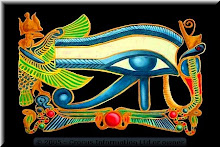A strong image in “Antigone” is the omen than Tiresias sees. He describes it as “tearing each other, dying in a whirlwind of wings clashing”(Sophocles 15-16). The image of the birds fighting is a unnatural picture. It’s unnerving to imagine birds destroying each other. The image that the messenger presents to Creon is also frightening. He describes Antigone’s dead body, “she had made a noose of her fine linen veil and hanged herself” (60). The beautiful veil being used for something as dreadful as suicide stands out as a strong image. Another important image is of Polynieces, by Antigone, as carrion. “His body…a sweet treasure for carrion birds to find as they search for food” (22-24). This is another example of something as dirty as a rotting body, being compared with something beautiful or positive as treasure. The mixture of death and beauty is used to give a sharp, distinct picture.
Creon’s fatal flaw is his arrogance and stubbornness. Haimon describes this well. He tells Creon “do not be unchangeable…the man who maintains that only he has the power…turns out empty” (73-76). Haimon is talking about how the man who does not compromise and thinks that he is alone right, ends up being the worse off. Creon is so arrogant and won’t listen to anyone else that he ends up hurting himself. The reason all the tragedy happened was because Creon was unchanging in his arrogance.
When the tragic hero, Creon, reaches anagnorisis, the perception of truth, he is apt to admit it. He says “I alone am guilty” (122). He finally realizes his mistakes. He also admits “I have been rash and foolish. I have killed my son and my wife” (133-135). Creon concludes that through his deeds, he inadvertently kills his wife and soon. He admits he did not listen to reason and was rash. Because Creon admits his mistakes it makes his seem less evil and more foolish.
Peripeteia, the reversal of the tragic hero's fate, happens when Haimon, Antigone, and the Queen all die. This is shown when the messenger says "They are dead. The living are guilty of their death" (17). The messenger is saying that many people have died and that Creon is guilty. Another line that shows Creon's flipped fate is when the messenger announces "Creon was happy once...And now it has all gone from him!" (6-10). This statements is that all of Creon's good fortune has left him.
Catharsis happens very close to the end. The reader loses pity for Creon when he gives up on life. He says "I have neither life nor substance" (124). Creon loses complete faith in himself and life. The audience stops having strong emotions like pity or fear for him. Creon soon after this, cries "let death come quickly, and be kind to me" (127-128). Creon accepts death and loses the will to go on from his fatal mistakes.
In Antigone women are characterized as being strong and loyal. Some men, especially Creon, make comments about how weak women are, but in the end it is Antigone who dies nobly and Creon is seen as weak and foolish. Antigone states "Creon is not strong enough to stand in my way" (35). Antigone believes that she can take on Creon and does not back down. Antigone stands up for her values including death rites. She says to Creon "Nevertheless, there are honors due all the dead" (114). Antigone is the one who is honorable and level-headed, unlike Creon who is arrogant and rash.
Works Cited
Sophocles. "Antigone." Literature Timeless Voices, Timeless Themes: World Literature. Trans. Dudley Fitts and Robert Fitzgerald. Upper Saddle River. Prentice Hall, 2001. 814-826.
Monday, November 24, 2008
Tuesday, November 18, 2008
Antigone LRJ #1
Today in our city of Thebes, King Creon has declared that Polyneices shall not receive proper burial rights, indeed that he shall be left to the dogs and carrion. The citizens of Thebes will remember the war that sparked this declaration of ungodly behaviour. The two brother's, Eteocles and Polyneices fought to take the throne, however Eteocles ended up with it. So Polyneices led a march on Thebes. Both brothers died in a fatal duel, leaving Creon to take over. King Creon decided that Eteocles shall have proper burial rites, but because Polyneices led a march on Thebes, he shall suffer the consequences. Antigone, Polyneices' and Eteocles' sister, has commented to yours truly, that she "will not stand by this abomination" and encourages all good citizens to help her in the task of giving Polyneices a proper burial. Ismene, Antigone's sister, was seen wringing her hands and shaking her head behind Antigone. Whether these two will succeed in their endeavor remains to be seen. If the King discovers the plot only the gods will be able to save the conspirators.
--Maggius Scimecius, The Thebes Tribune
--Maggius Scimecius, The Thebes Tribune
Wednesday, November 12, 2008
Thoughts About Technology
This is my first blog. I have very little experience with technology. I can get around most computers but I really don't have an extensive knowledge of them. My brother is really in to computers and whenever I have a problem with them I ask him to deal with it. His name is Danny and he's thirteen years old. He will be attending Central next year. I prefer PCs over Macs because I grew up on PCs. I'm excited to use this blog and I hope my knowledge of computers will grow. I love how much information you can get from the internet, but I feel as though computers often don't work and I just get frustrated. I also don't like how computers are beginning to replace paper, because I would much rather hold a book then stare at a screen.
Subscribe to:
Comments (Atom)
